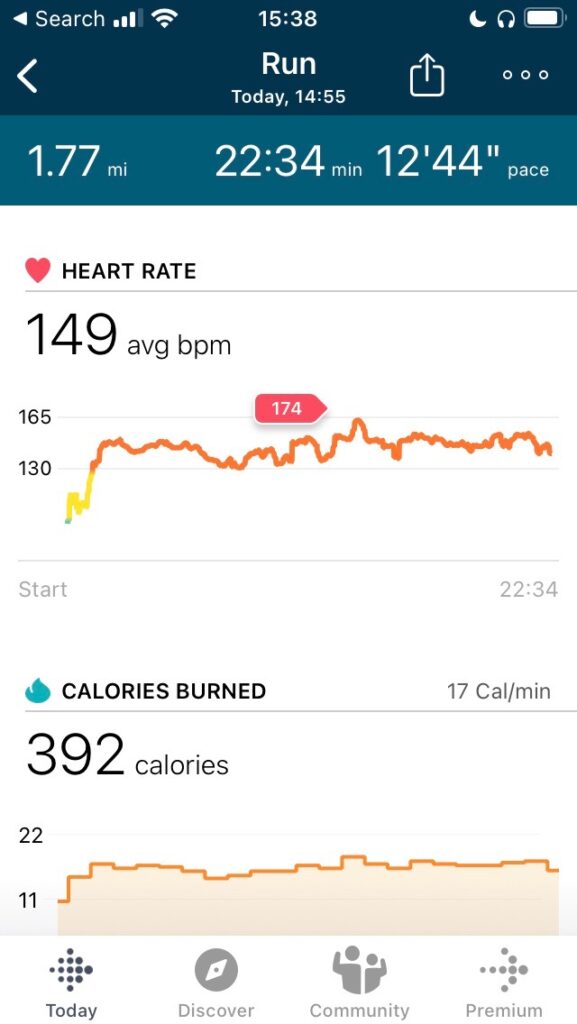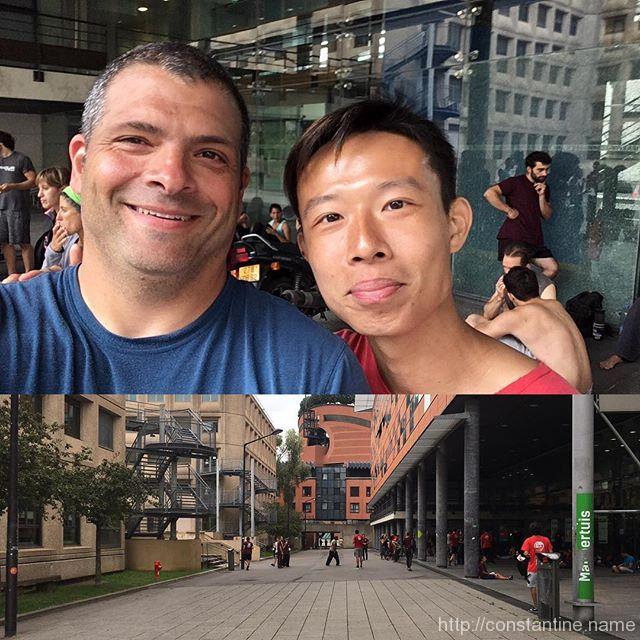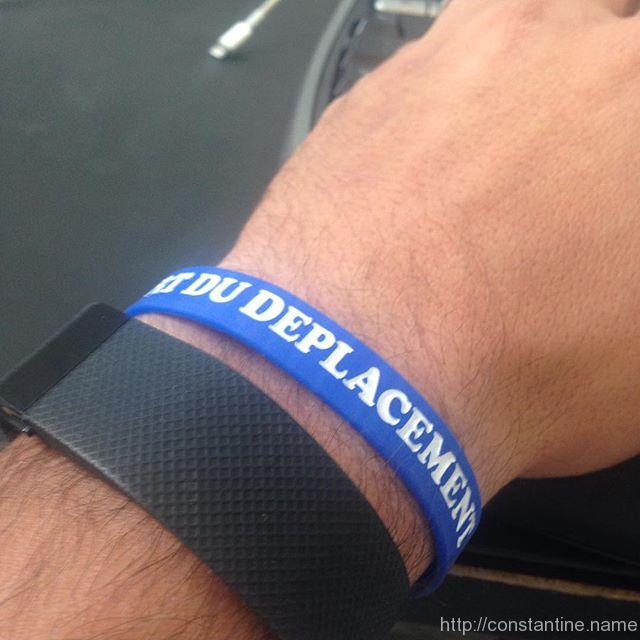So Verizon’s new CEO sent me an email…
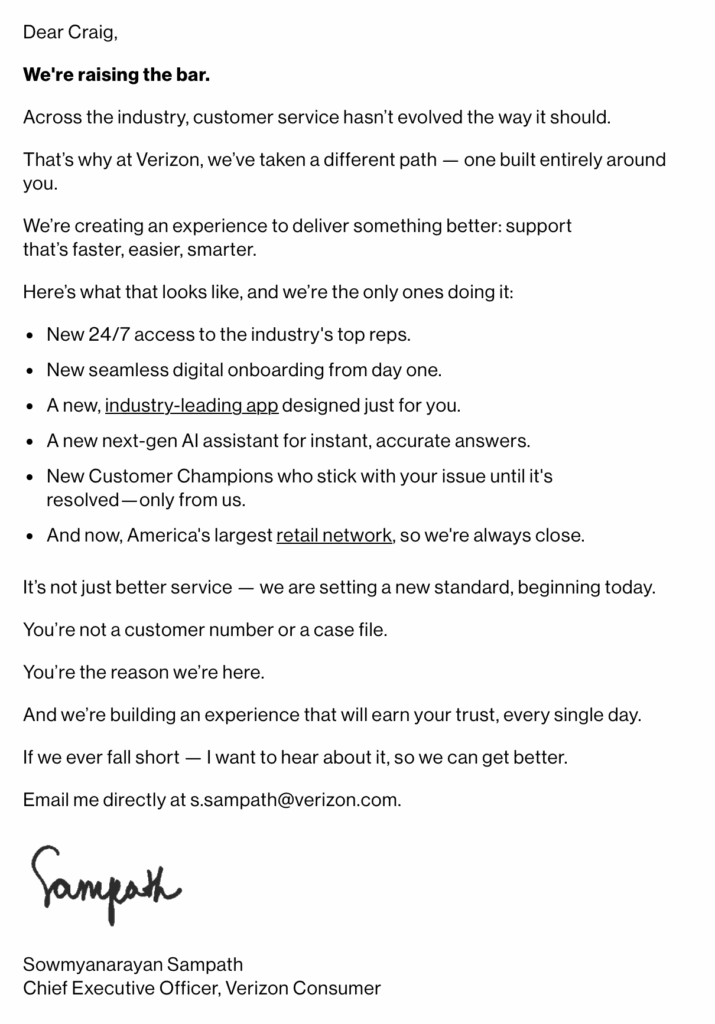
Where shall I begin?
First — You can’t simply reply. I get it. It’s hard to have a mailbox on the Internet these days. So many bounces, to deal with (I’m serious.)
Second — So when you go to drag-select, copy and paste that “s.sampath@verizon.com” email address, you discover it’s not what it seems.
Pasting into your email client’s “To” field, you actually create a list of multiple recipients: The first recipient is “s”, then the second is “sampath”, etc—none of which are the email address you meant to copy and paste. So you have to type it into your email client. Not a big deal, but probably enough to stop most people. If they really cared, they’d just give us an
<a href="mailto:s.sampath@verizon.com">s.sampath@verizon.com</a>
and let us just click or touch it, et voila!
Okay, but why can’t we copy and paste? Because in the HTML source in their email, it’s actually:

If you can read HTML, you see there are HTML entities jammed in various places in that email address. I had to lookup the entity ‌ — that’s a Zero Width Non-Joining space. Meaning it’s not visible (“zero-width”) and it’s job is to keep whatever is left and right from “joining”… in the sense that complex characters can join to make a glyph— For example: An ‘a’ and ‘e’ can join to make the single character ‘æ’ if your language supports that. (But, of course, English does not have any joining characters at all.) I’m confident this is just an artifact of their bulk-email-sending composer software; it’s common for such things to “defend” an email address in the middle of text from harvesting looking for emails. So this wasn’t maliciousness on Verizon’s part.
Third — …but it’s ironic that, in a message that contains, “It’s not just better service — we are setting a new standard, beginning today,” I have to flip between windows as I retype that email address.
Fourth — Because I’m a level-39 nerd wizard, I do reply to these things. (I mean, I start a new email message addressed to that email address.) And because we (said wizards) are quick to anger and regular Internet users (ie, Sampath) are tasty with ketchup, I send things like this…
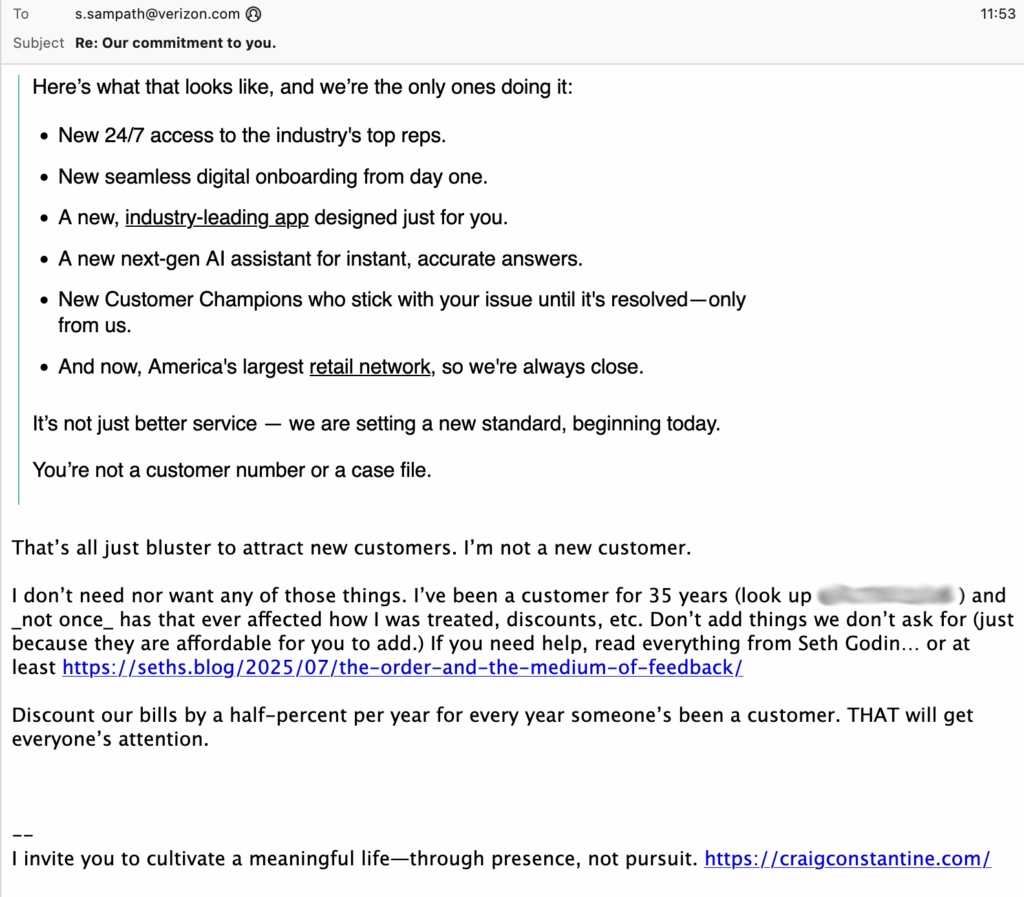
I’ll followup when I get my 17.5%.
ɕ
